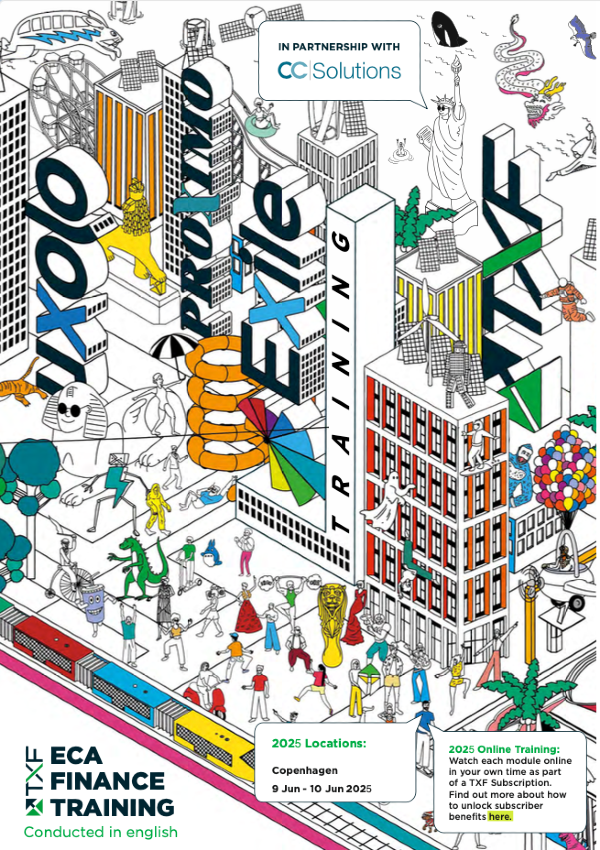Sustainable evolution of digital trade requires digital-first regulation
Planned US and UK trade negotiations have the potential to shape the future of data trade by reaching consensus on how to regulate blockchain, writes R3’s Alisa DiCaprio.

In an increasingly digital global economy, data is king. Establishing an agreement on trade in data is now equally as important as trade in goods when it comes to negotiating free trade arrangements, yet there is currently very little standardisation on a global scale.
Upcoming negotiations between the US and UK give these two major economies the opportunity to take decisive action, shaping new global rules that could provide a template for other countries across the globe. At the heart of these discussions will be how to regulate the technology that will form the infrastructure for the future of global trade: blockchain.
Establishing a transatlantic template
The UK’s Department for International Trade (DIT) has indicated it will prioritise discussing blockchain regulation when it meets with its counterpart across the Atlantic in the coming months. And the resulting framework could provide much-needed certainty to developers and users of a technology that is slowly but surely replacing the creaky legacy infrastructure of yesteryear, not just in the UK and US but across the globe.
If handled appropriately, the outcome of these negotiations can be used as global template to reduce the administration, financial and compliance burdens that often act as a barrier to entry for blockchain.
In many ways, blockchain is the underlying catalyst that has kickstarted the broader discussions happening today around digital trade. After all, the global interest in blockchain is geography-agnostic, reflecting the technology’s ability to provide a global cross-border digital trade network.
We are at a unique point in time where resistance to regulations around technology is historically low. It’s now time for negotiators in both free trade agreements and the World Trade Organization (WTO) to take this up. It’s time to update the global rules for trade to reflect the reality of technological change and digital goods and services.
So how can negotiators add blockchain to their discussions? Use it to inform improved rules in three areas – standards, domestic barriers to digital transactions, and data security. These three areas could update the template for digital chapters in FTAs, and, ultimately, set out the parameters of a WTO agreement on trade in data.
Achieving the network effect
In order to move towards a truly digitised and connected ecosystem for global trade, mass adoption on a global scale is essential. This elusive network effect can only be achieved if legislators prioritise forward-thinking and inclusive regulatory solutions that lower the barriers to entry for all types of companies involved in the trading process. But this must not be at the expense of maintaining high levels of data protection and privacy standards.
One key goal in trade negotiations is to improve competition. Today there is some concern around blockchain adoption due to uncertain regulatory treatment and uneven rules and implementation around paper documentation.
If only a handful of firms adopt a blockchain solution for trade such as Marco Polo, for example, the solution is useless if one company needs to trade with another that is outside this circle of early adopters. All the other benefits of blockchain such as speed, efficiency and lower costs mean nothing if you cannot use the platform to connect with the necessary counterparties. But this mass adoption is difficult to achieve without consistent global rules and standards around the underlying technology.
How can a bilateral negotiation promote blockchain innovation? Introduce rules about digital exchange of documents. They could do this by promoting implementation of United Nations Commission on International Trade Law (UNCITRAL) model laws. Because these have been negotiated by a group of countries, they are viewed as a neutral set of suggestions. The US in fact already meets or exceeds most suggestions under the UNCITRAL model law on electronic transferrable records.
UK: jurisdiction of choice for international trade
A second recommendation is to remove domestic barriers to transactions. Trade is transactional, which means that it needs to be underpinned by laws. English law is, by far, the most prominent jurisdiction of choice for international trade contracts. Yet, there are some elements that do not support digital transactions.
If English law were to be updated to ensure the legal force of electronic documents and instruments, this could cross the global threshold and start a cascading affect to all other legal structures. Promissory Notes and Bills of Exchange are two instruments that are not able to be digitised under English law. Changing this situation is well within the regulator’s grasp.
Because of its position as the trade jurisdiction of choice, the UK has incentive to tweak the last remaining issues in English law. The FTA offers the opportunity to identify and update those areas of English law that are barriers to digital trade transactions. This could be included in the digital chapter.
Stripping away the barriers
A third recommendation is to include elements of data transfer and security. The United States Mexico Canada Agreement (USMCA) has already added data localisation restrictions. The US-UK FTA should also reduce barriers to free flow of data. Data localisation clearly violates the WTO principal of ‘most-favoured nation’ (MFN), but isn’t covered and so distorts trade without limit. Or rather, presents a way for countries to seek to unilaterally limit or promote it.
The agreement should also recognise moves toward decentralized identifiers (DID). While not specific to trade, it is key to some of the benefits that blockchain is providing to international trade. It relates to the idea that blockchain allows for types of identifiers that are able to be certified independently of a central registry. By opening up the ability of small businesses and businesses in developing countries to own their identities, this feature of blockchain can increase financial inclusion, open up new opportunities for trade finance, and help integrate these firms into the global economy.
The time for leadership is now
In addition to the promise of the upcoming US-UK FTA negotiations, there are a number of initiatives happening that support these issues globally. The International Chamber of Commerce (ICC) is updating all of its Uniform Rules to be digital friendly, as one example. One of these working groups has developed a digital trade “roadmap” that identifies specific actions countries can take to move the digital agenda forward.
The single underlying challenge for both countries and the users of blockchain technology is that there is no single government official responsible for “digital trade.” But there is now an undercurrent of interest. FTA negotiations can solve this problem at a regional scale.
Blockchain has the power to be a transformative technology. It is adjusting how trade is originated, transacted and settled. 2020 is the year that the WTO and domestic governments need to recognise that this opportunity won’t last forever. The time for leadership is now.





